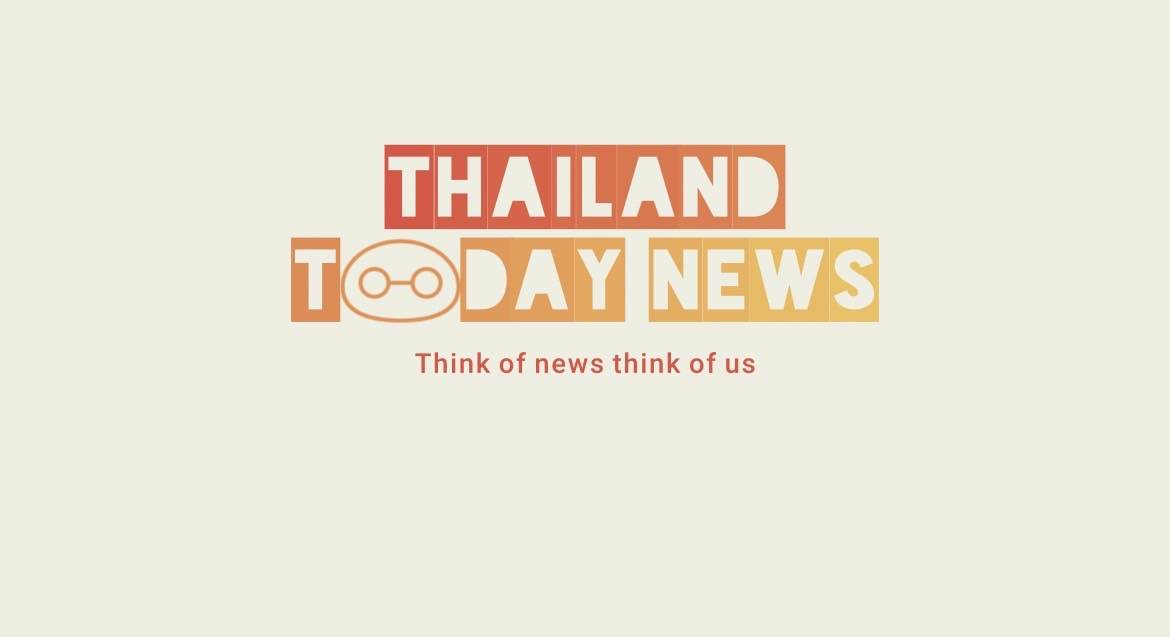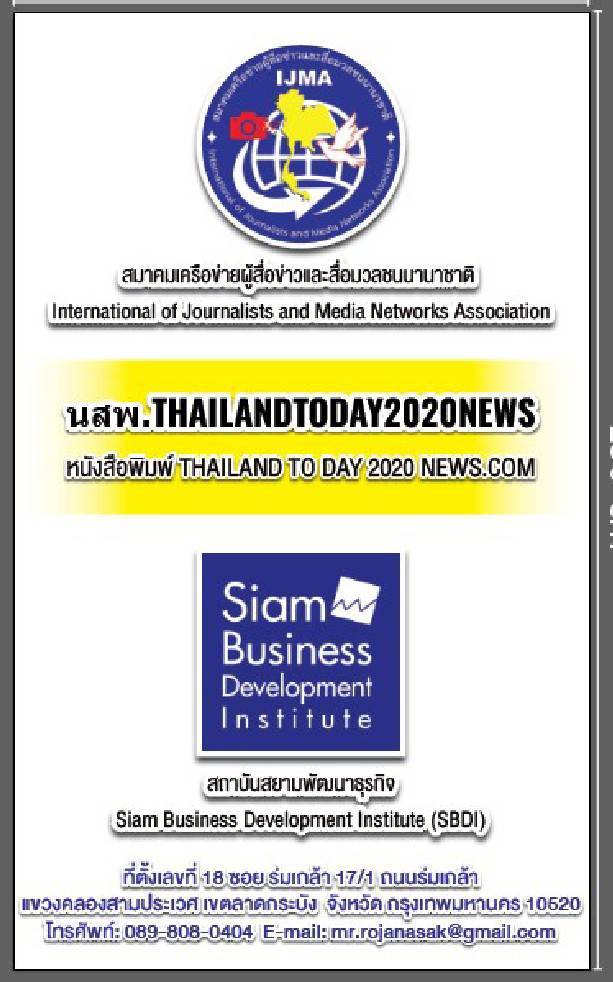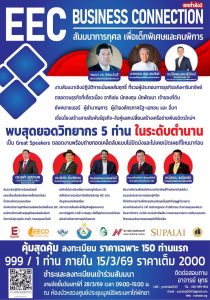
ทิศทางสื่อไทยปี 2568 โอกาสและความท้าทายวงการสื่อ
ทีผ่านมา ปี 2567 สื่อหลายค่ายมีการปรับโครงสร้างองค์กร ลดขนาดธุรกิจ ทำให้ต้องลดจำนวนคน เลิกจ้าง ซึ่งมีทั้งเป็นข่าว และดำเนินการแบบเงียบๆ แต่จากแนวโน้มอุตสาหกรรมสื่อคาดว่าจะเห็นการเลิกจ้างเกิดขึ้นอีก การปรับตัวเพื่ออยู่รอด เชื่อว่าทุกองค์กรเข้าใจจุดแข็ง จุดอ่อนภายในบริษัทอยู่แล้ว แต่การลดต้นทุน โดยใช้เทคโนโลยีปัญญาประดิษฐ์หรือเอไอ มาเสริมทัพ ทั้งเพิ่มประสิทธิภาพ ประหยัดหรือร่นระยะเวลาทำงาน ซึ่งย่อมส่งผลกระทบต่อการจ้างงานของคนเช่นกัน
ปี 2568 อุตสาหกรรมสื่อโฆษณายังเหนื่อยต่อเนื่อง โดยเฉพาะทีวี เพราะพฤติกรรมผู้บริโภคเปลี่ยนไปแล้ว ดูทีวีน้อยลง ส่วนสื่อนอกบ้านรุ่งเรือง แต่เจาะผู้ประกอบการแต่ละรายยังมีเหนื่อยอยู่ เพราะเม็ดเงินโฆษณาในตลาดมีจำนวนจำกัด สื่อดั้งเดิมเดียวที่จะเติบโตคือ สื่อโฆษณานอกบ้าน และสื่อเคลื่อนที่ และทีวีดิจิทัลจะติดลบ 7% และคาดการณ์จะครองเม็ดเงินโฆษณาสัดส่วน 30% เป็นอันดับ 2 รองจากสื่อโฆษณาดิจิทัล และจะเห็นแพลตฟอร์มขนาดเล็กทรงพลังมากขึ้น นอกเหนือจากติ๊กต็อก ได้แก่ เลมอนเอท (L8) เอ็กซ์ (X) อินสตาแกรม (Instagram
นายสุภาพ คลี่ขจาย นายกสมาคมโทรทัศน์ระบบดิจิตอล (ประเทศไทย) เปิดเผยว่า ภาพรวมอุตสาหกรรมสื่อปี 2567 เผชิญความโหดร้ายจากภัยคุกคาม ทั้งเทคโนโลยีที่ก้าวหน้า พฤติกรรมผู้บริโภคในการเสพสื่อ โดยเฉพาะสื่อทีวีดิจิทัลยังผ่านห้วงเวลาที่ประมูลใบอนุญาตประกอบกิจการ (ไลเซนส์) ในราคาสูงมาก แนวโน้มปี 2568 อุตสาหกรรมสื่อจะแย่ลงหรือไม่ขึ้นอยู่กับภาวะเศรษฐกิจไทย หากเศรษฐกิจดีขึ้น อาจมีทางออกมากขึ้นสำหรับผู้ประกอบการสื่อ และการหารายได้จากเม็ดเงินโฆษณาจะตามมาด้วยทั้งนี้ การอยู่รอดในปี 2568 ผู้ประกอบการสื่อต้องปรับตัวอย่างแรงกล้า ดุเดือด หักมุม ขณะเดียวกันอาจมีการเลิกจ้างหรือ Layoff พนักงาน ซึ่งกรณีนี้เกิดทุกวงการไม่แค่ธุรกิจสื่อ
นายภวัต เรืองเดชวรชัย ประธานกรรมการและประธานเจ้าหน้าที่บริหาร บริษัท มีเดีย อินเทลลิเจนซ์ กรุ๊ป จำกัด หรือ MI GROUP กล่าวว่า แนวโน้มอุตสาหกรรมสื่อโฆษณาปี 2568 จะเห็นอัตราการ เติบโตเล็กน้อยจากการขับเคลื่อนของสื่อโฆษณาดิจิทัลและสื่อโฆษณานอกบ้าน ส่วนสื่อประเภทอื่นๆ คาดการณ์หดตัวทั้งหมด แต่ภาพรวมจะเห็นเม็ดเงินสะพัด 90,879 ล้านบาท ขยายตัว 4.5% จากปี 2567 คาดการณ์ปิดตัวเลขที่ 86,989 ล้านบาท เพราะเม็ดเงินโฆษณาในตลาดมีจำนวนจำกัด
นางสาวปัทมวรรณ สถาพร ประธานกรรมการบริหาร กรุ๊ปเอ็ม (ประเทศไทย) กล่าวว่า ปี 2568 ภูมิทัศน์การตลาดดิจิทัลจะยิ่งมีความซับซ้อนและเปลี่ยนแปลงอย่างรวดเร็วต่อเนื่อง ทำให้นักการตลาดต้องตั้งคำถามกับตัวเองว่าแบรนด์สินค้าของบริษัทกำลังเดินไปในทิศทางที่ถูกต้องอยู่หรือไม่ มีความเข้าใจผู้บริโภคอย่างแท้จริงแล้วหรือยัง ที่สำคัญกลยุทธ์ และช่องทางที่ใช้อยู่ตอบโจทย์ความต้องการของตลาดในปัจจุบัน และอนาคต จากรายงาน This Year Next Year ล่าสุด ของกรุ๊ปเอ็ม คาดการณ์แนวโน้มการลงทุนในอุตสาหกรรมสื่อโฆษณาดิจิทัลของไทยปี 2568 จะเติบโตขึ้นอีก 8% คิดเป็นมูลค่ารวมกว่า 140,000 ล้านบาท หรือคิดเป็น 65% ของงบประมาณโฆษณาทั้งหมดในประเทศ ซึ่งสูงกว่างบโฆษณาทางโทรทัศน์ 24.4% และสื่อนอกบ้าน 8.4% อย่างมีนัยสำคัญ สำหรับเม็ดเงินการลงทุนสื่อโฆษณาดิจิทัลหลัก “แสนล้านบาท” กรุ๊ปเอ็มระดับโลก ได้ประเมินจากผู้ประกอบการ แบรนด์เล็กไปจนถึงแบรนด์ใหญ่ที่ใช้จ่ายเงินทั้งระบบ ซึ่งปัจจุบันยังไม่มีการเก็บรวบรวมข้อมูลอีกมหาศาล ขณะที่สมาคมโฆษณาดิจิทัล (ประเทศไทย)หรือ DAAT ประเมินมูลค่าหลักหมื่นล้านบาท เป็นเพียงการเก็บจากสมาชิกฯ และจากแพลตฟอร์มบางส่วนเท่านั้น
บริษัท ดาต้าเซ็ต จำกัด ผู้ให้บริการด้านมีเดียอินเทลลิเจนซ์ ได้เผยแพร่รายงานภูมิทัศน์สื่อไทยปี 2567-2568 (Thailand Media Landscape 2024-2025) ซึ่งชี้ให้เห็นการเปลี่ยนแปลงที่เกิดขึ้นในวงการสื่อ ความนิยมในคอนเทนต์เฉพาะทางเปิดโอกาสให้อินฟลูเอนเซอร์และคอนเทนต์ครีเอเตอร์กลุ่มนี้สามารถต่อยอดผลงานในโลกออนไลน์ไปสู่กิจกรรมออฟไลน์ได้อย่างมีประสิทธิภาพ เนื่องจากฐานผู้ติดตามคอนเทนต์ประเภทนี้เป็นกลุ่ม Niche ที่ได้รับความนิยมมีทั้งคอนเทนต์ที่เกี่ยวกับสัตว์เลี้ยง ครอบครัว ประวัติศาสตร์ การเงิน การพัฒนาตนเอง
โดยเฉพาะคอนเทนต์สายข่าว News Creator ได้กลายเป็นความท้าทายของสื่อมืออาชีพ เนื่องจากมีผู้ติดตามไม่น้อยไปกว่ากัน อย่างไรก็ดี จรรยาบรรณและการตรวจสอบข้อเท็จจริงยังคงเป็นประเด็นที่น่าเป็นห่วงสำหรับอินฟลูเอนเซอร์และครีเอเตอร์กลุ่มนี้
ส่วนโซเชียลมีเดียนั้น เฟซบุ๊กยังคงครองอันดับ 1 ในแง่ของแพลตฟอร์มที่คนไทยชื่นชอบใช้งาน รวมถึงการช็อปปิง การสร้างรายได้ที่สูงขึ้น โดยเฉพาะติ๊กต๊อก (TikTok) จากสถิติของ Priceza.com ที่ระบุว่า ติ๊กต๊อกก้าวขึ้นเป็นแพลตฟอร์มอีคอมเมิร์ซอันดับ 3 ของไทย โดย 71% ของผู้ใช้ซื้อสินค้าทันทีขณะรับชมคอนเทนต์ สื่อที่น่าจับตา ได้แก่ พอดคาสต์และวิดีโอพอดคาสต์ พบว่าในช่วง 5 ปีที่ผ่านมาจนถึงปี 2567 จำนวนการผลิตรายการพอดคาสต์ในประเทศไทยเติบโตขึ้นถึง 81% สะท้อนให้เห็นถึงความสนใจอย่างมากจากทั้งผู้ผลิตคอนเทนต์และผู้ฟัง เนื่องจากเป็นสื่อต้นทุนต่ำ ผลิตได้ง่ายและเร็ว อีกทั้งยังสอดคล้องกับพฤติกรรมผู้บริโภคยุคนี้ที่เลือกฟังรายการที่ตนเองชื่นชอบไปพร้อมกับการทำกิจกรรมอื่น ๆ ได้
ในทางกลับกัน สื่อที่ต้องติดตามกันต่อไปคือทีวี ว่าจะฝ่าความท้าทายจากสื่อข้างต้นที่กล่าวมาทั้งหมดได้อย่างไร หลังจากที่เรตติ้งการรับชมทีวีผ่านสตรีมมิ่งเพิ่มขึ้นเป็น 54% แซงหน้าการรับชมผ่านทีวีที่ลดลงเหลือ 46% ภายในระยะเวลาเพียง 1 ปีจากปี 2566-2567 ขณะที่เม็ดเงินโฆษณาทีวีช่วงมกราคม-กรกฎาคม 2567 มีมูลค่า 33,875 ล้านบาท ซึ่งแม้จะยังครองสัดส่วนสูงสุดที่ 50.13% ของงบโฆษณาสื่อทั้งหมด แต่ก็หดตัวลง 2% ที่จะไม่พูดถึงไม่ได้ก็คือ ปัญญาประดิษฐ์หรือ AI ที่ผลสำรวจโดย Vero ชี้ว่า นักข่าวไทย 95% มีทัศนคติเชิงบวกต่อการใช้ AI ในวงการสื่อ ในขณะที่สำนักข่าวและสถานีโทรทัศน์ต่าง ๆ ได้นำ AI มาประยุกต์ใช้ในหลากหลายรูปแบบ ทั้งผู้ประกาศข่าว AI และระบบ Text-to-Speech
ดังนั้นปี 2568 จะเป็นอีกปีที่สื่อดั้งเดิมต้องเร่งปรับตัวรับมือกับการแข่งขันที่รุนแรงขึ้น ส่วนผู้ที่สามารถสร้างสรรค์คอนเทนต์ตอบโจทย์ความต้องการเฉพาะทางของผู้บริโภคจะมีโอกาสเติบโตสูง
https://thailandtoday2020news.blogspot.com/2025/01/2568-thai-media-in-2568-be.html



Thai media in 2568 B.E., opportunities and challenges for the media industry.
In 2024, many media companies have restructured their organizations, reduced their business size, reduced the number of people employed in both news and quiet operations. However, the media industry is expected to see more layoffs, improvement to survive, and believe that all organizations already understand the strengths and weaknesses of the company, but reduce costs through artificial intelligence technology (AI) to reinforce the army. In addition, they will increase efficiency, save or shorten working hours, which will affect the employment of people as well.
In 2025, the advertising industry is still tired, especially TV, as consumers’ behaviour has changed, watching TV less, while outdoor advertising is still difficult, as advertising spending is limited. The only traditional media to grow is outdoor and mobile TV and digital TV will be minus 7% and expected to dominate the proportion of advertising. 30% is second to digital advertising and will see more powerful small platforms in addition to ticktock: Lemonet (L8) X (X) Instagram.
Mr. Supap Kleekajai, President of Digital Television Association (Thailand), revealed that the overall media industry in 2027 faces threats such as advanced technology, consumer behaviour in media consumption, especially digital TV, when bidding for licenses at very high prices. The outlook for 2025 is whether the media industry will deteriorate or not depending on the Thai economy. If the economy improves, there may be more solutions for media entrepreneurs and advertising revenues. To survive in 2025, media entrepreneurs will have to adjust aggressively and aggressively while layoff employees. In this case, all businesses will not just be media businesses.
Mr. Phawat Ruangdejvorachai, Chairman and Chief Executive Officer of Media Intelligence Group Co., Ltd. (MIGROUP), said, The outlook for the advertising industry in 2015 will see slight growth driven by digital and outdoor advertising. All other media are expected to contract, but overall, revenue is expected to reach THB90.879 billion, up 4. 5% from 2024, we expect to close at Bt86.989bn due to limited advertising spending in the market.
Pattamawan Sathaporn, Chairman of GroupM (Thailand) said, In 2025, the digital marketing landscape will be increasingly complex and rapidly changing, prompting marketers to ask themselves whether their brands are moving in the right direction. And the channels used to meet current and future market demand. According to GroupM’s latest This Year Next Year report, investment in Thailand’s digital advertising industry in 2015 is expected to grow 8% to over Bt140 billion, or 65% of the total domestic advertising budget, higher than TV advertising budget 24.4% and outdoor media 8. 4% of the world’s major digital advertising investment “Bt100bn” Group M is estimated from small-to-large brands. Currently, there is no data collection, while the Digital Advertising Association (Thailand) (DAAT) estimates Bt10bn is only collected from members and some platforms.
DataSet Co., Ltd., the leading provider of media intelligence, today released the Thailand Media Landscape 2024-2025 report, highlighting the changes in the media industry. The popularity of specialized content allows this group of influencers and content creators to expand their work online to offline activities. This is because the content monitoring base is a popular niche group, including pet, family, history, finance, and self-development content.
In particular, News Creator has become a challenge for professional media as it has no less than an audience. At the same time, ethics and fact-finding continue to be a concern for this group of Influencers and Creators.
As for social media, Facebook has maintained its No. 1 ranking in terms of popular platforms for Thai people, including shopping, higher revenue generation, especially TikTok, according to Priceza’s statistics. com, which states that Ticktock has become Thailand’s third largest e-commerce platform with 71% of users buying products immediately while viewing content. The eye-catching media, Podcasts and Video Podcasts, has grown 81% over the past five years to 2024, reflecting strong interest from both content producers and audiences. This is because it is a low-cost media that is easy to produce and fast. It is also in line with the behaviour of consumers who choose to listen to their favourite programs while doing other activities.
On the other hand, the media that needs to be monitored is TV, how to overcome all of the challenges mentioned above. After the TV ratings for streaming have risen to 54% over the past 46% in just one year from 2020-2014, while TV advertising spending from January to July 2017 was worth Bt33.875 billion, although it still has the highest proportion of 50. 13% of the total media advertising budget, but it can’t be mentioned by 2%. Artificial Intelligence (AI), according to Vero, 95% of Thai journalists are positive about AI use in the media sector. Meanwhile, news and television stations have applied AI in a variety of ways, including AI news anchors and text-to-speech systems.












